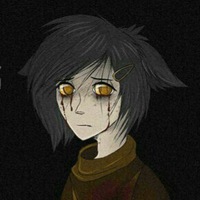
Помогите пожалуйста! Кавказская война (1817-1874 гг) причина сражения, главнокомандующий, итоги.
Русско- иранская война (1826- 1828 гг) причина сражения, главнокомандующий, итоги. Крымская война (1853- 1856 гг) причина сражения, главнокомандующий, итоги. 0
0
 0
0
Ответы на вопрос
 Внимание! Ответы на вопросы дают живые люди. Они могут содержать ошибочную информацию, заблуждения, а также ответы могут быть сгенерированы нейросетями. Будьте внимательны. Если вы уверены, что ответ неверный, нажмите кнопку "Пожаловаться" под ответом.
Внимание! Ответы на вопросы дают живые люди. Они могут содержать ошибочную информацию, заблуждения, а также ответы могут быть сгенерированы нейросетями. Будьте внимательны. Если вы уверены, что ответ неверный, нажмите кнопку "Пожаловаться" под ответом.

Ответ:Причины :1) вхождение Грузии в состав России
2)расширение свои территорий.
Ход :война носила специфический характер , взятие укрепленных пунктов и т.д ,, но в ходе военных действий шло и укрепление.( велись сторительные работы , заготавливались дрова.)
и в результате войны : Чечня , Горный Дагестан,Северо- западный кавказ были окончательно присоеденены к России.Присоеденение было насильсвенно - феодальными методами.И усиление положения России на международной арене.
Объяснение:
 0
0
 0
0

Kavkazskaya War (1817-1874)
The Caucasian War, also known as the Kavkazskaya War, was a series of military conflicts that took place between 1817 and 1874 in the Caucasus region. The war was fought between the Russian Empire and various indigenous peoples of the Caucasus, including the Circassians, Chechens, and Dagestanis.Causes of the War: The main cause of the war was the Russian Empire's desire to expand its territory and control over the Caucasus region. The Russian government aimed to establish control over the strategic region, which was a crossroads of trade routes and had valuable resources such as oil and minerals. Additionally, the Russian Empire sought to suppress the resistance of the local population, who resisted Russian rule and sought to maintain their independence [[1]].
Main Commander: The Russian forces in the Caucasus were led by several commanders throughout the course of the war. One of the most notable commanders was General Aleksey Yermolov, who served as the commander-in-chief of the Russian forces from 1816 to 1827. Yermolov implemented a brutal policy of scorched earth and deportation to suppress the resistance of the local population. Other notable commanders included General Mikhail Vorontsov and General Nikolay Muravyov-Amursky [[2]].
Outcomes: The war lasted for several decades and had a significant impact on the region. The Russian Empire gradually gained control over the Caucasus, although resistance continued in some areas. The war resulted in the displacement and forced migration of many indigenous peoples, particularly the Circassians, who were subjected to mass deportations and ethnic cleansing. The war also had a profound cultural and demographic impact on the region, with many indigenous peoples losing their traditional lands and way of life [[3]].
Russo-Iranian War (1826-1828)
The Russo-Iranian War, also known as the Persian War of 1826-1828, was a conflict between the Russian Empire and the Persian Empire (Iran). The war was primarily fought over territorial disputes and the Russian Empire's desire to expand its influence in the Caucasus and Central Asia.Causes of the War: The main cause of the war was the Russian Empire's expansionist policies in the Caucasus and Central Asia. The Russian government aimed to establish control over the territories that were historically part of the Persian Empire. Additionally, the Russian Empire sought to protect its interests in the region, including access to trade routes and resources such as oil and minerals [[4]].
Main Commander: The Russian forces in the Russo-Iranian War were led by General Ivan Paskevich, who served as the commander-in-chief of the Russian army in the Caucasus. Paskevich was a skilled military commander and successfully led the Russian forces to several victories against the Persian army. His leadership and military strategies played a crucial role in the Russian Empire's success in the war [[5]].
Outcomes: The war ended with the signing of the Treaty of Turkmenchay in 1828. As a result of the treaty, Persia ceded significant territories to Russia, including parts of present-day Armenia, Azerbaijan, and Georgia. The treaty also established Russian influence in the region and marked the beginning of the Russian Empire's dominance in the Caucasus [[6]].
Crimean War (1853-1856)
The Crimean War was a conflict fought between the Russian Empire and an alliance of France, Britain, the Ottoman Empire, and Sardinia. The war took place primarily on the Crimean Peninsula, but also involved naval battles in the Black Sea and military operations in the Caucasus and the Baltic Sea.Causes of the War: The main cause of the Crimean War was a dispute over the rights of Christian minorities in the Ottoman Empire, particularly in the Holy Land. France and Russia both sought to protect the rights of Christians and gain influence in the region. Additionally, the war was fueled by geopolitical rivalries and the desire to maintain the balance of power in Europe [[7]].
Main Commanders: The main commanders in the Crimean War were Marshal Jacques Leroy de Saint Arnaud and General Aimable Pélissier for France, Lord Raglan for Britain, and Marshal Omar Pasha for the Ottoman Empire. On the Russian side, the main commanders were Prince Menshikov and General Ivan Paskevich [[8]].
Outcomes: The war ended with the signing of the Treaty of Paris in 1856. The treaty resulted in several significant outcomes, including the recognition of the neutrality of the Black Sea, the independence of Moldavia and Wallachia (later united as Romania), and the recognition of the Ottoman Empire's sovereignty over its territories. The war also marked a shift in the balance of power in Europe and had a significant impact on the modernization of the Russian Empire [[9]].
I hope this information helps! Let me know if you have any further questions.
 0
0
 0
0
Топ вопросов за вчера в категории История
Последние заданные вопросы в категории История
-
Математика
-
Литература
-
Алгебра
-
Русский язык
-
Геометрия
-
Английский язык
-
Химия
-
Физика
-
Биология
-
Другие предметы
-
История
-
Обществознание
-
Окружающий мир
-
География
-
Українська мова
-
Информатика
-
Українська література
-
Қазақ тiлi
-
Экономика
-
Музыка
-
Право
-
Беларуская мова
-
Французский язык
-
Немецкий язык
-
МХК
-
ОБЖ
-
Психология
-
Физкультура и спорт
-
Астрономия
-
Кыргыз тили
-
Оʻzbek tili





















